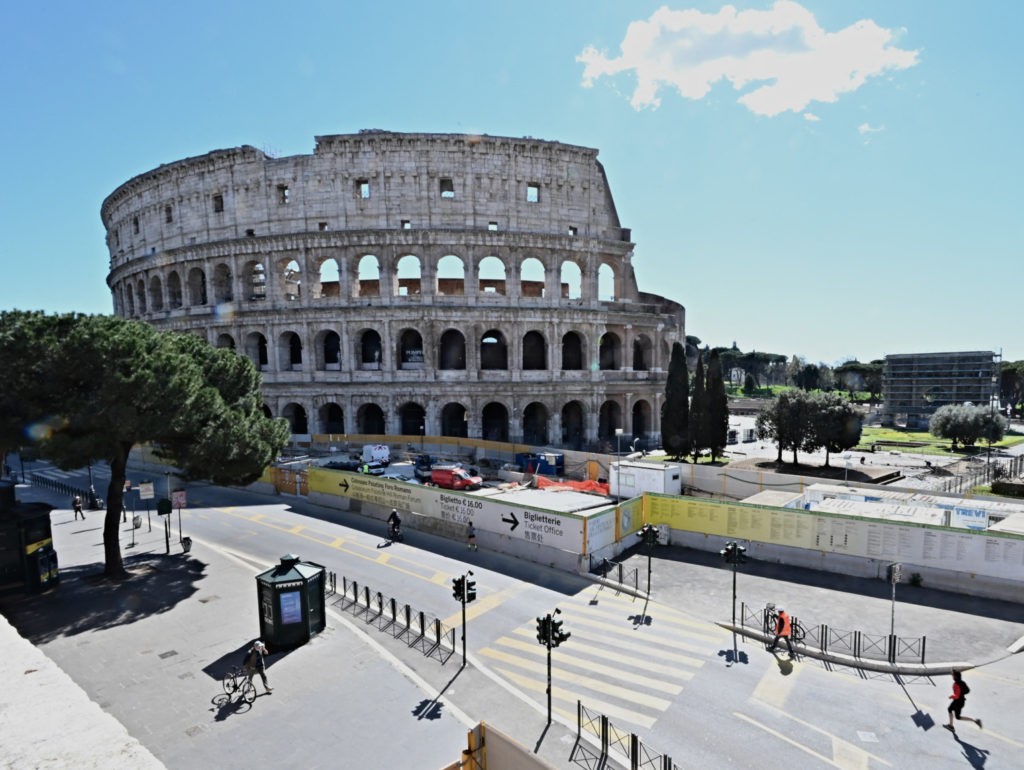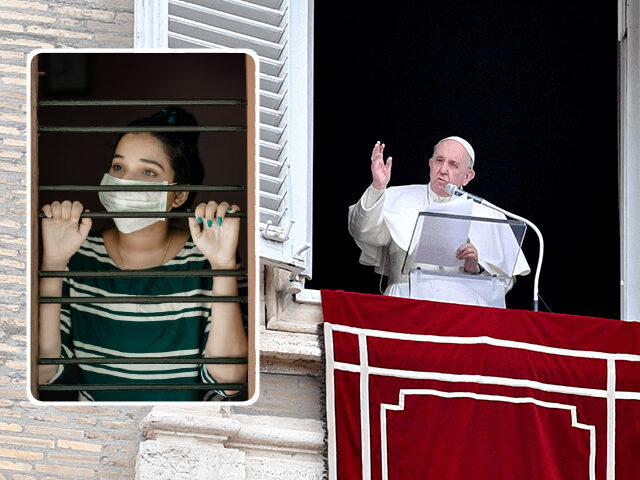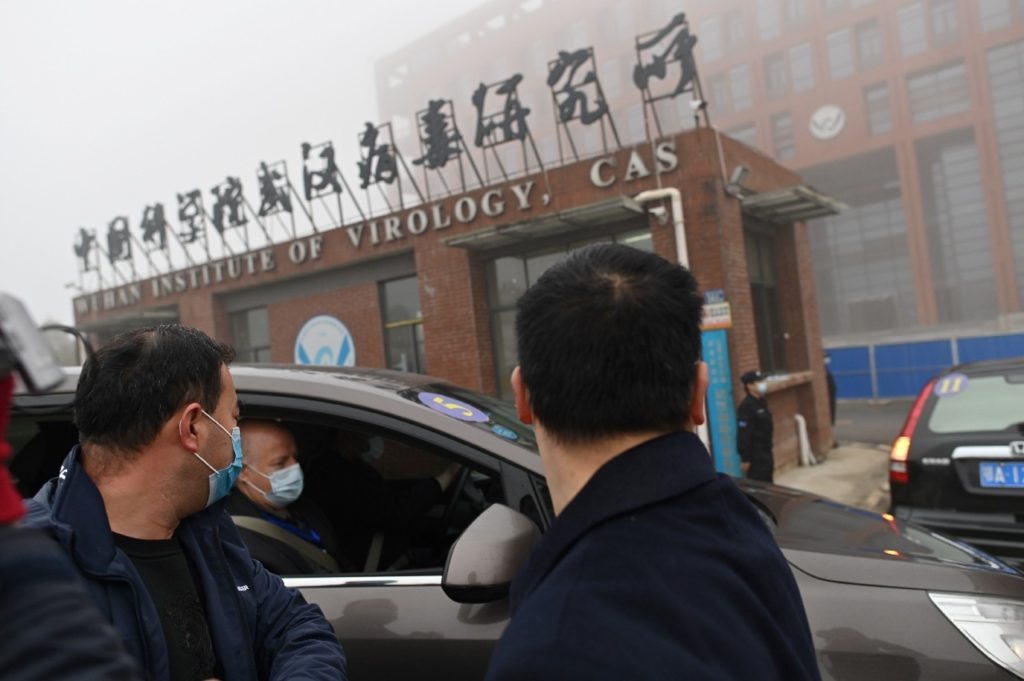ROME — Pope Francis has offered an analysis of the coronavirus pandemic in which all the negative fallout came from the disease itself rather than the human response to the problem.
The coronavirus “plunged us into a dark night,” the pontiff writes in his message for the upcoming World Day of Peace. “It destabilized our daily lives, upset our plans and routines, and disrupted the apparent tranquility of even the most affluent societies.”
Praising the world’s healthcare workers for their efforts “to relieve immense suffering and to seek possible remedies,” the pope gently declares that political authorities “had to take measures to organize and manage efforts to respond to the emergency.”
During the entire pandemic period, Francis never criticized the repressive lockdowns, the shuttering of churches, the mandatory subjection to untried vaccines, the closing of schools, or the decimation of entire industries.
The pope’s own city of Rome experienced a level of suppression of citizens’ rights and liberties not seen since the Second World War. For months on end, citizens could not leave their houses without carrying papers justifying their absence from home, which security forces could arbitrarily demand from anyone on the street.
Patrol cars coursed slowly up and down Roman streets, bellowing at citizens through bullhorns to stay in their houses or face the consequences. Every Monday, Rome’s mayor published the number of citizens detained over the weekend, boasting of the number of fines and other punishments administered.

Streets are almost emty in front of the Ancient Colosseum in central Rome, on March 15, 2021, as three-quarters of Italians entered a strict lockdown with the government implementing restrictive measures to fight the rise of Covid-19 infections. (ANDREAS SOLARO/AFP via Getty Images)
Elsewhere in the world, dissident voices suggesting more nuanced and rational approaches to the pandemic such as the Great Barrington Declaration were systematically silenced or ridiculed, as recent revelations of internal Twitter communications clearly show.
In his message for the World Day of Peace (January 1), which the Vatican released Friday, the pope seems to attribute all the evils of the pandemic period to the coronavirus itself rather than the human response to it.
Later in the message, in fact, Francis compares the pandemic to the war in Ukraine, insisting that the greatest difference between the two is that the war was “driven by culpable human decisions,” whereas the pandemic was presumably a purely natural phenomenon whose murky origins in Wuhan, China, do not merit investigation.
The coronavirus “led to a general malaise in many individuals and families,” the pope writes, adding that “the long periods of isolation and the various restrictions on freedom contributed to this malaise, with significant long-term effects,” an apparently unavoidable corollary to the disease.
“Nor can we overlook the fractures in our social and economic order that the pandemic exposed, and the contradictions and inequalities that it brought to the fore,” he writes. “It threatened the job security of many individuals and aggravated the ever-increasing problem of loneliness in our societies, particularly on the part of the poor and those in need.”
“We need but think of the millions of informal workers in many parts of the world left without a job and without any support during the time of the lockdown,” he adds, as if the coronavirus itself had forced people to abandon their employment.
The pope goes on to suggest that three years later, the time has come to look back on our common experience to see what lessons can be learned.
“Today we are being asked: What did we learn from the pandemic?” he writes. “What new paths should we follow to cast off the shackles of our old habits, to be better prepared, to dare new things? What signs of life and hope can we see, to help us move forward and try to make our world a better place?”
In answer, Francis states that “the greatest lesson we learned from Covid-19 was the realization that we all need one another. That our greatest and yet most fragile treasure is our shared humanity as brothers and sisters, children of God. And that none of us can be saved alone.”
Nowhere does he suggest there is anything to be learned from society’s mistakes in dealing with the pandemic or that often the remedy can be far worse than the disease itself.
The pandemic “also had its positive effects,” the pope asserts. “These include a chastened return to humility, a rethinking of certain consumeristic excesses, and a renewed sense of solidarity that has made us more sensitive to the suffering of others and more responsive to their needs.”
“Indeed, the most effective responses to the pandemic came from social groups, public and private institutions, and international organizations that put aside their particular interests and joined forces to meet the challenges,” he contends. “Only the peace that comes from a fraternal and disinterested love can help us overcome personal, societal and global crises.”
The leader of the world’s largest Christian denomination finds nothing else to learn from a period in which the faithful were abandoned by their pastors, where people died without spiritual assistance or even a funeral Mass, where the sacraments were largely unavailable, and where the Church’s principal message seemed to be: obey the government.
In centuries past, the Church stood out for its leadership during devastating plagues, when prelates and priests heroically ministered to the faithful at great personal risk and where messages of the value of eternal life, the transience of all earthly pursuits, and the redemptive meaning of suffering provided an important spiritual perspective that science was unable to give.
The absence of any such leadership during the most recent pandemic might offer material for a more fruitful self-examination, one that would offer greater lessons than the realization that “we all need one another.”


COMMENTS
Please let us know if you're having issues with commenting.